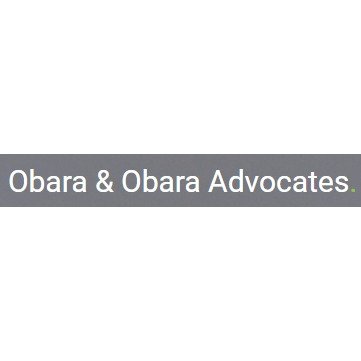Best Bankruptcy Lawyers in Kisumu
Share your needs with us, get contacted by law firms.
Free. Takes 2 min.
List of the best lawyers in Kisumu, Kenya
About Bankruptcy Law in Kisumu, Kenya:
Bankruptcy in Kisumu, Kenya is governed by the Kenyan Insolvency Act of 2015 which provides the legal framework for declaring both individuals and businesses insolvent. This law enables debtors who cannot pay their debts to protect themselves from legal actions by creditors. It's important to note that the process can be complex and requires careful consideration of legal and financial consequences.
Why You May Need a Lawyer:
While it's possible to declare bankruptcy without a lawyer, the process involves navigating complex legal and financial terrain. For example, you may need help determining whether you're eligible for bankruptcy, understanding various types of bankruptcies, the process of filing, and the implications for your assets. An experienced lawyer can ensure your rights are protected, help you understand all the potential outcomes, and guide you through each step of the complex proceedings.
Local Laws Overview:
The Kenyan Insolvency Act of 2015 directs bankruptcy proceedings and distinguishes between personal and corporate insolvency. Personal insolvency involves bankruptcy itself, where debts exceed assets, and voluntary arrangements for debt repayment. Corporate insolvency includes administration, receivership, and liquidation. Depending on the specifics of the case in question, different rules and procedures will apply. Filing for bankruptcy also has repercussions regarding credit, assets and future business undertakings. A trained lawyer will help you understand these nuances and their implications for your situation.
Frequently Asked Questions:
What does the bankruptcy process look like?
The process starts with the debtor or their creditors filing a petition. If approved, a bankruptcy trustee is appointed to sell off non-exempt assets to pay off creditors. After all assets have been liquidated and the money distributed, the debtor receives a discharge of debt.
What are the consequences of bankruptcy?
Bankruptcy significantly affects your credit, making it difficult to secure loans or financing in the future. It also involves selling off most of your assets. However, it allows for a fresh financial start once the discharge has been issued.
What is a bankruptcy trustee?
A bankruptcy trustee is a person appointed by the court to manage the debtor's estate, including selling off assets to pay creditors. The trustee is responsible for ensuring the process runs smoothly and fairly for all parties involved.
Can I keep any property if I go bankrupt?
Yes, certain exemptions allow you to keep some property. These exemptions, outlined in the Kenyan Insolvency Act, usually include assets essential for basic living and work.
Can all types of debt be discharged in bankruptcy?
No, certain types of debts cannot be eliminated in bankruptcy. These often include child support, alimony, student loans, and some tax debts. This is why legal advice is crucial in such cases.
Additional Resources:
The Kenyan government online portal provides comprehensive information on bankruptcy. The Kenyan Official Receiver's office oversees all bankruptcy cases and can provide detailed guidance on the process. Additionally, organizations like the Law Society of Kenya and various legal aid NGOs in Kisumu can point you towards affordable or free legal help.
Next Steps:
If you're considering filing for bankruptcy, it's advisable to consult with a lawyer. Gather all relevant documents; notably, you'll need a comprehensive list of your assets, liabilities, income, and expenses. Finally, remember that while bankruptcy can provide a fresh financial start, it should be seen as a last resort, reserved for situations where other methods of debt repayment are unfeasible.
Lawzana helps you find the best lawyers and law firms in Kisumu through a curated and pre-screened list of qualified legal professionals. Our platform offers rankings and detailed profiles of attorneys and law firms, allowing you to compare based on practice areas, including Bankruptcy, experience, and client feedback.
Each profile includes a description of the firm's areas of practice, client reviews, team members and partners, year of establishment, spoken languages, office locations, contact information, social media presence, and any published articles or resources. Most firms on our platform speak English and are experienced in both local and international legal matters.
Get a quote from top-rated law firms in Kisumu, Kenya — quickly, securely, and without unnecessary hassle.
Disclaimer:
The information provided on this page is for general informational purposes only and does not constitute legal advice. While we strive to ensure the accuracy and relevance of the content, legal information may change over time, and interpretations of the law can vary. You should always consult with a qualified legal professional for advice specific to your situation.
We disclaim all liability for actions taken or not taken based on the content of this page. If you believe any information is incorrect or outdated, please contact us, and we will review and update it where appropriate.









